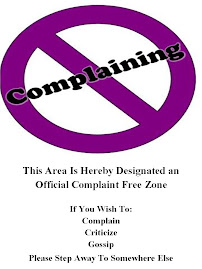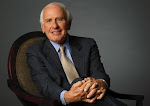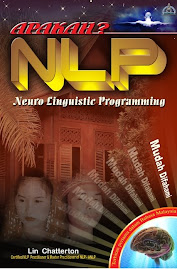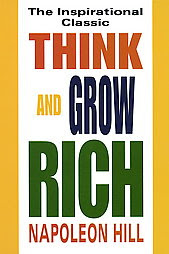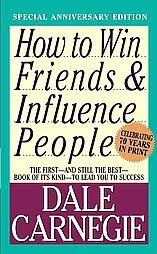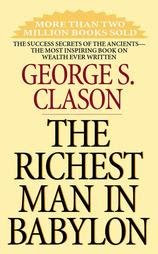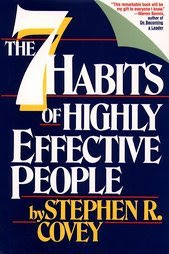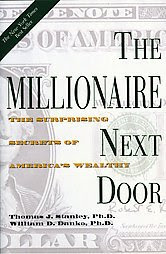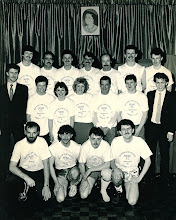Tuesday, June 13, 2017
Currents in the Stream by Stephen R. Covey
When I talk of the "stream," I mean the external forces and the powerful, deep currents that influence all we do in business. Changes in technology have totally revolutionized our world. The instant communication and rapid transfer of knowledge along the "information highway" have altered everything. The media have aroused expectations, and created various models and images in people's minds. All of this turns the social wheel, which then turns the political wheel, which ultimately affects the economy and international wheels. The powerful social, political, and economic currents have created a white-water environment for everyone in business. Some leaders like to think that "the problem" is in the stream and that, "if we only had more (or less) government regulation, more protection, a better social climate, better schools if only the stream were different then we'd be more competitive."
Changeless Core
While conditions might always be better, I focus on the need to have a changeless core so that I can flow with the changes and trends in the stream. People without the changeless core are often at the mercy of all these influences. They're buffeted and tossed by every wind of policy and practice. They're distracted by what's floating on the surface or by what's blowing in the wind of their industry, profession, or company. They become opportunistic and jump at situational opportunities that are very attractive at the time, even if that means leaving their "knitting" or abandoning their primary profit centers for a time. We're tempted in our own company toward that trend. We've done some surveys to determine what clients want. They want us to get into implementation. But if we move into that, we would leave our knitting paradigms and principles. That's a very attractive thing. It's seductive. But eventually it might pull us away from our essential mission.
At both the individual and corporate level, you need both the stability of product line and some entrepreneurial spirit. In a small firm, you have to resist the temptation to do "anything for a buck." In a large firm, you have to have eyes for new opportunity. It takes that same balance on an individual and corporate level. The key is the alignment between the changing streams and the changeless, principled center. That becomes the strategic path that you have to develop. When you have a framework that comes out of both the awareness of the changing environment and the essential function or purpose that you're trying to serve, you will think and act long-term. As Peter Drucker says, "Plans are worthless, but planning is invaluable."
Complementary Team
That duality of short-term opportunism and long-term stability might be found in one dynamic leader, but it usually it takes a complementary management-leadership team. Only a few very dynamic leaders understand both.
Typically it's either one or the other; they're either predisposed to surfing and riding the waves, or to developing this deep changeless core.
They either get caught in ruts and routines or live in the world of dreams and idealism with little practical, pragmatic sense about them. We need courage balanced with consideration. Consideration includes an awareness of the stream of realities. And courage includes steadfastness toward your vision, mission, and values. I once consulted with the leaders of a large organization. They had a changeless core, but no dynamic vision. They were woefully out of touch with the stream. The president had spent most of his life in the roles of professional, technician, and producer. Because he enjoyed production, he spent half his time personally answering calls and letters and micro-managing. After we talked for a while, he could see it clearly, and he said, "What have I done? I've pulled away from my vision!"
That experience taught me the supreme importance of imagination over memory. If people live out of their memory, they're bound to the past if they live out of imagination, they create opportunity. Peter Drucker said that effective executives are opportunity-minded; ineffective executives are problem-minded. Effective executives focus on the future. Ineffective executives focus on the past; in fact, they see the present through the past; effective executives see the present through the future. Imagination is more powerful and significant than memory. As Einstein said, "Imagination is greater than knowledge."
Be Proactive
This balance between the changing stream and the changeless core is one of the clearest manifestations of the primary habit of effective people be proactive. Proactive people see opportunities everywhere, and they adapt to the stream. They have the power to adapt because they're coming from something that does not change. They're very creative in their minds and innovative in their methods. They're not hung up by forms and structures and old modes of thinking and ways of behaving.
Reactive people are constantly reading the political pulse, and their social radar is so deeply attuned to what is happening, and they're so responsive to it, that if those forces are in any way adverse or contrary to what they're trying to accomplish, they are quickly and completely filled with the blaming spirit. They get into what I call "spiritual and emotional cancers." They compare the past or the way it used to be with what is. Criticizing and complaining are their full-time occupations. Economies have to be based on a solid foundation of proactive and innovative behaviors in management, manufacturing, and marketing.
The book, The Spoiled Child of the Western World, essentially says that the western world, starting in Greece, has been pushing further to the west until it gets right to the outside edge of a country where all the flakiness of the culture distills in one place. Some might think that analysis fits California or Hawaii, but I suggest that it fits anyplace where people want to "ride the surf" to prosperity. Hedonism may bring short-term pleasure but not long-term prosperity.
If the economy of an area isn't growing, but the population is or if people are not inventing, designing, making, and marketing products and services of substance then we can expect an economy based on "pizza and videos." And that simply doesn't cut it. Many executives I talk to believe that "the answer" is to "move out" of what they perceive to be a hostile business environment and seek a better stream, an operating environment more conducive to business. They feel that they are defenseless victims against the powers of the stream.
I've been in many situations where executives talk about the "uneven playing field" and about how "government is strangling business." While I understand why they are frustrated, I often perceive in their talk and walk a reactive spirit and a tendency to absolve themselves of responsibility for optimizing the present situation. They want to have something or somebody take care of them rather than respond proactively to make their opportunities grow. I honestly think there's never been a time of greater opportunity.
There's more opportunity today than ever before simply because there are so many new niches, so many new needs. That's why a country in crisis can go to the extreme right or the extreme left so easily. When an individual or a country loses this principle-centered, changeless core, then the person or nation rather quickly sinks to the depths of irresponsibility in social will. But when you're starving to death, none of the political promises have been kept, and no one's taking care of you like they used to, you can see why that happens.
Two Cab Drivers
When I was in Germany, I remember talking with two cab drivers. One was an older gentleman, and the other was a young man. The older cab driver was longing for the old days. As he drove us around Berlin, he described the awfulness of all this so-called "new freedom," and how he now has much less opportunity. The younger cab driver looked at the same exact world, and yet he was excited about the opportunities. He was thinking creatively about how he might improve his condition. The other was trying to maintain the old position.
These two cab drivers are like two executives one accommodating the new realities, and one opposing all change. One leads a young company that's aggressive, fast, and opportunistic; the other leads an older company that is time-bound, filled with archaic structures and systems, and blind to new opportunities. Cultures tend to flow from the reactive or proactive tendencies of the leadership. Organizations tend to be shadows of their founders and current leaders.
The childlike leader with a proactive nature might see adversity as an opportunity for adventure, play, fun, and freedom, whereas an old leader might see it as potential risk, disaster, or death. In a snow storm, the child sees a time to play, but the father the person in the ultimate seat of responsibility is often weighed down by the realities of having to shovel the walks and put chains on the tires. That's why it often takes a complementary team to lead and manage.
After President Clinton gave his speech on NAFTA in front of George Bush, it was then the former president's turn to speak. When he got up, he just gave a very authentic expression, "I now know why you were elected and I was not." It's that ability to speak enthusiastically about seizing the future the excitement and glory of change, of celebrating change and loving it.
Genuine excitement over change can only come when you have a deep sense of who you are, what you want to accomplish, what your agenda is, and how you feel about things. We need to have the attitude that the future is here, and that things are going to change. We need to recognize and run with opportunity and exercise the proactive spirit that we all have inside us as long as we don't abandon our changeless core principles.






